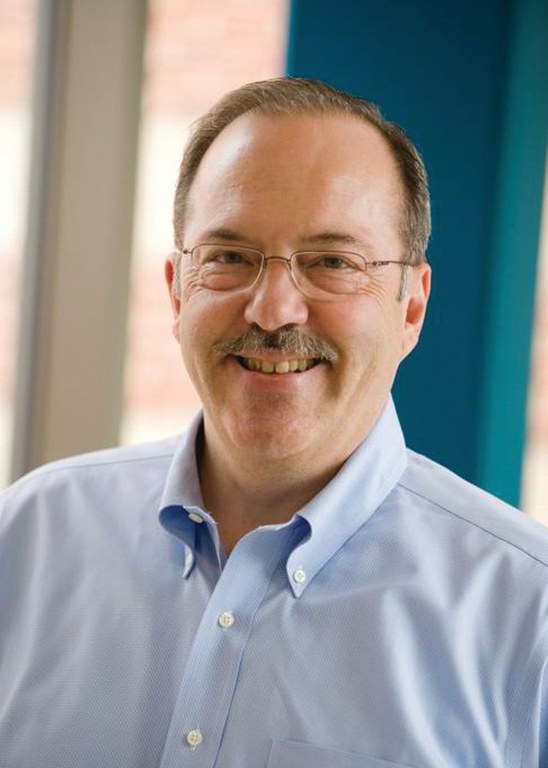Posted: March 17, 2022
Terry Etherton retires after more than 40 years in the Department of Animal Science.
When Terry Etherton joined the Penn State faculty in 1979, the use of biotechnology for the improvement of animal species was in its infancy. When he retired from the University more than four decades later, in June 2021, the still-evolving field had advanced greatly, thanks in part to Etherton's groundbreaking work.
Etherton, Distinguished Professor Emeritus of Animal Nutrition, is known in animal science circles around the world for his pioneering research on the effects of the growth hormone recombinant porcine somatotropin, or pST, on growing pigs, and as a leading authority on the need for agricultural biotechnology in sustaining the global food system. In the college, he also is recognized as a leader whose steady hand guided the Department of Animal Science through growth, change, and challenges for more than 22 years.
"I learned of Professor Etherton's research accomplishments while in Australia from 2007 to 2014, and I was delighted to come to Penn State and work with him," recounts Rick Roush, dean of the College of Agricultural Sciences. "Terry has had an enormous visionary influence on his department and our college. He recruited and mentored the great majority of the faculty in the Department of Animal Science, the benefits of which will accrue for many years to come."
Etherton said that unprecedented scientific advances in his field in the early 1980s spurred his research group to study the effects of administering recombinant porcine growth hormone to growing pigs.
"We were the first to establish that administering pST led to remarkable improvements in growth rate, muscle mass, and feed efficiency," he said. "At the same time, we found that pST dramatically reduced the growth of body fat. We also conducted basic research to further our understanding of the biological mechanisms that mediated the effects of pST."
Etherton was named department head in 1998, stepping down in November 2020. Over that 22-year span, he oversaw much growth and change in the department, which some observers consider to be one of the elite departments among its peers in the United States.
"We witnessed a doubling in size of the undergraduate program, and our research and extension portfolios increased significantly," he said. "The dairy nutrition, reproductive biology, and poultry science research programs are among the best in the world."
Etherton said he "enjoyed immensely" watching and helping colleagues and students pursue and achieve success. And the "capstone" of his tenure as department head, he noted, was the investment of approximately $120 million over the past four years in construction projects that benefit the department, including the new Animal, Veterinary, and Biomedical Sciences Building.
"This speaks volumes about how the Commonwealth, University, college, and our stakeholders value the department," he said.
--Chuck Gill
Features
Fostering Forests
Across the United States, forests face unprecedented threats, and scientists in Penn State's College of Agricultural Sciences are conducting novel and complex research to conserve them.
Buzzing With Purpose
Community scientists work to protect Pennsylvania's wild bees
Conservation Reimagined
Exploring new approaches to cope with a changing climate



